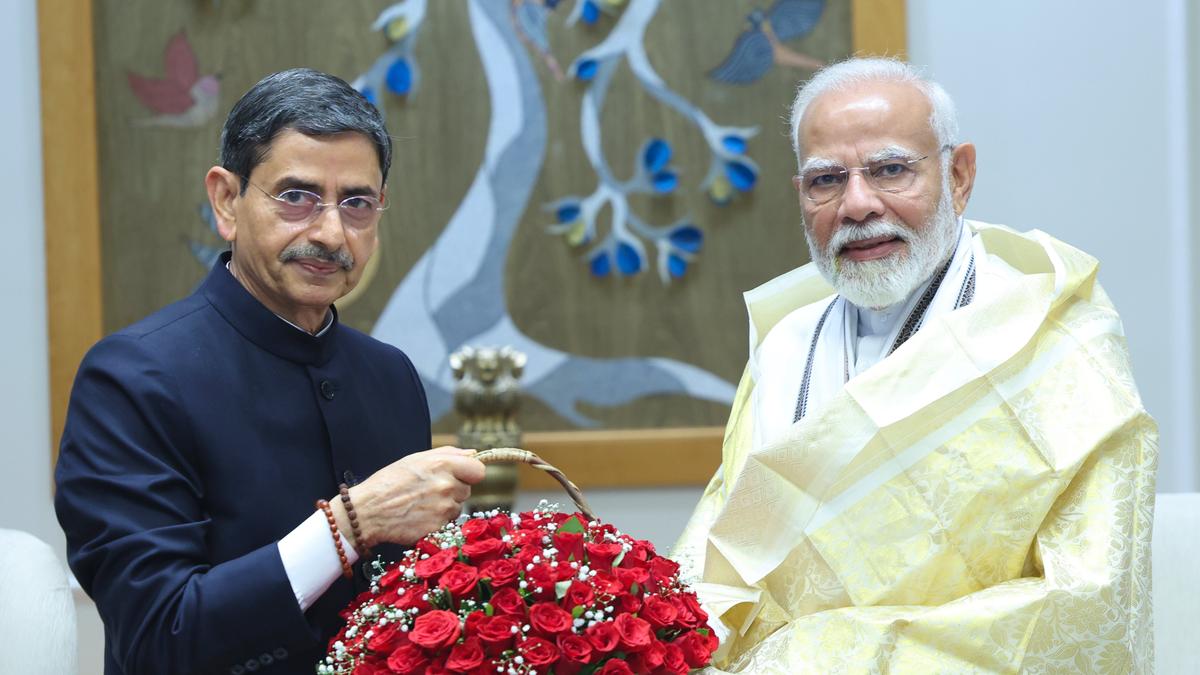On July 16, 2024, Tamil Nadu Governor R.N. Ravi met with Prime Minister Narendra Modi in New Delhi. This high-level interaction comes at a time of considerable political tension between the Tamil Nadu state government, led by Chief Minister M.K. Stalin, and the Governor. This blog will delve into the context, significance, and potential outcomes of this meeting, while examining the broader political landscape in Tamil Nadu.
The Political Context
Governor R.N. Ravi’s tenure has been marked by a series of contentious interactions with the Tamil Nadu state government. The ruling Dravida Munnetra Kazhagam (DMK) party, led by Chief Minister M.K. Stalin, has repeatedly clashed with the Governor over various administrative and legislative issues. This discord reached a peak recently when the Governor walked out of the Tamil Nadu Legislative Assembly during a session led by the Chief Minister, exacerbating the strained relationship between the state's executive and gubernatorial branches.
Key Issues Discussed
During his visit, Governor Ravi was expected to discuss several pressing issues with Prime Minister Modi, including the recent legislative developments in Tamil Nadu, the Governor's administrative actions, and the ongoing disputes between the state government and the Governor's office. Specific issues likely to have been on the agenda include the Governor's decision to return several bills passed by the Tamil Nadu Legislative Assembly, his controversial remarks on Tamil culture and history, and his recent actions regarding state ministers.
Legislative Disputes: Governor Ravi has returned numerous bills to the state assembly for reconsideration, citing various reasons. This has created significant delays in the legislative process, leading to frustration within the DMK government. The Prime Minister's intervention was sought to address these procedural roadblocks and facilitate smoother legislative operations in the state.
Cultural and Historical Remarks: Governor Ravi's statements on Tamil culture and history have been perceived as provocative by the DMK and various cultural organizations in Tamil Nadu. These remarks have sparked protests and calls for his removal, further complicating his relationship with the state government.
Administrative Actions: Recently, Governor Ravi took unilateral actions regarding state ministers, including the dismissal of a jailed minister from the state cabinet. These actions have been challenged by the state government, leading to a legal and political standoff that necessitated the involvement of the central government.
Significance of the Meeting
The meeting between Governor Ravi and Prime Minister Modi is significant for several reasons:
Central-Regional Relations: This interaction highlights the intricate balance of power between the central and state governments in India. The Governor, as a representative of the President of India in the state, plays a crucial role in maintaining this balance. His meeting with the Prime Minister indicates the central government's involvement in resolving state-level conflicts.
Political Stability: Tamil Nadu is a crucial state in India's political landscape. Ensuring political stability in Tamil Nadu is essential for both state and national interests. The meeting aims to address the ongoing conflicts and foster a cooperative environment between the Governor and the state government.
Policy Implementation: The resolution of disputes between the Governor and the state government is vital for the effective implementation of policies and programs in Tamil Nadu. Any delays or disruptions in this relationship can adversely impact governance and development initiatives in the state.
Potential Outcomes
While the exact details of the discussions between Governor Ravi and Prime Minister Modi remain confidential, several potential outcomes can be anticipated:
Mediation and Resolution: Prime Minister Modi could mediate between the Governor and the state government to resolve their differences. This mediation could involve a reassessment of the returned bills, a review of the Governor's remarks on Tamil culture, and a reconsideration of recent administrative actions.
Policy Directives: The Prime Minister might issue specific directives to the Governor to ensure smoother cooperation with the state government. These directives could include guidelines on the handling of legislative bills, cultural sensitivities, and administrative actions.
Strengthening Federalism: The meeting could result in a reaffirmation of the principles of federalism, emphasizing the need for cooperative governance between the central and state governments. This reaffirmation would be crucial in maintaining the democratic fabric of the country.
Conclusion
The meeting between Tamil Nadu Governor R.N. Ravi and Prime Minister Narendra Modi underscores the complexities of central-state relations in India. As Tamil Nadu navigates through this period of political tension, the outcomes of this high-level interaction will play a critical role in shaping the state's governance and political stability. By addressing the core issues and fostering a spirit of cooperation, this meeting holds the potential to resolve the ongoing conflicts and pave the way for a more harmonious relationship between the Governor and the state government.

Comments
Post a Comment